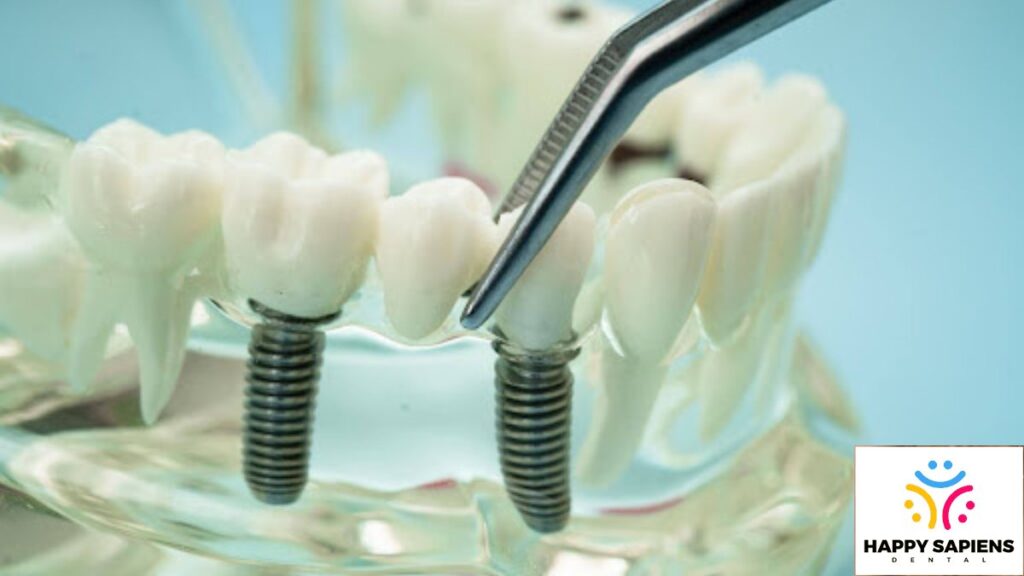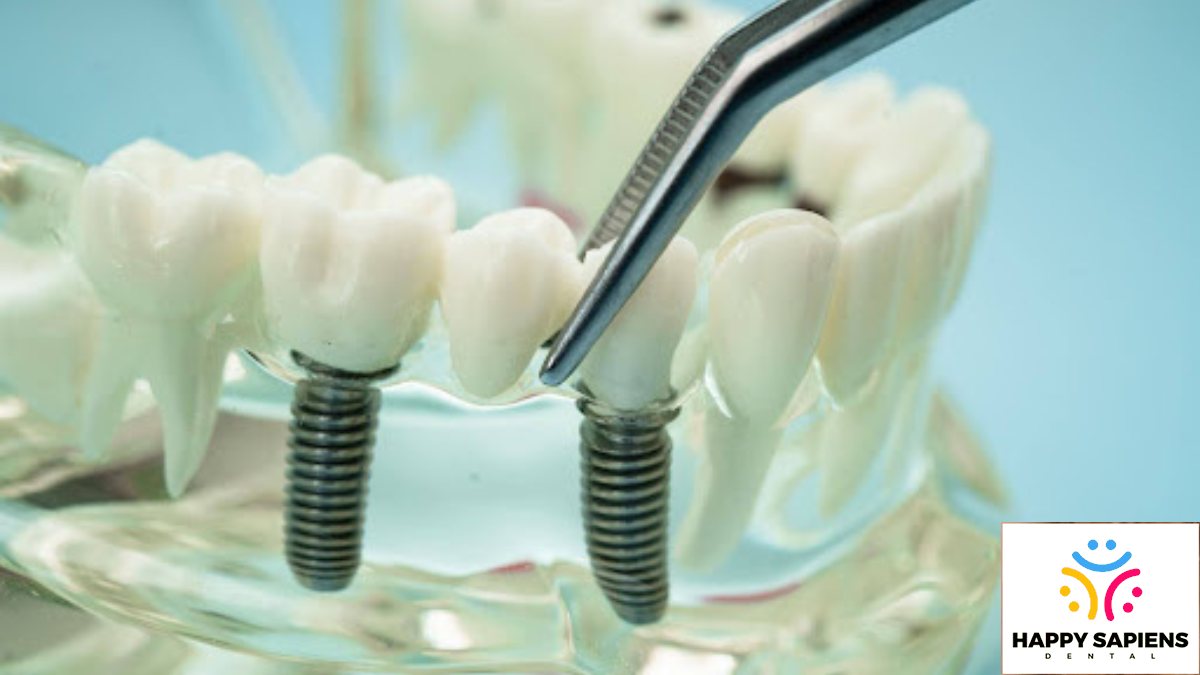
Everyone’s experience with dental implants is different. Typically, dental implants require a healing period of 3 to 6 months, during which the implant fuses with the jawbone to create a stable foundation for a replacement tooth. This process, known as osseointegration, is essential for ensuring the implant is strong enough to support a crown, bridge, or denture.
While dental implants are considered a long-term solution for tooth loss, understanding the stages of healing and what to expect throughout recovery can help patients feel confident and prepared for the journey.
What Are Dental Implants?
Dental implants are small titanium posts surgically placed into the jawbone to replace the roots of missing teeth. They serve as a secure base for attaching an artificial tooth, such as a crown, bridge, or denture.
Unlike traditional dentures or bridges, implants are designed to integrate with the jawbone, making them a permanent solution that closely mimics natural teeth in appearance and function.
How Long Do Dental Implants Last?
With proper care, dental implants can last a lifetime. Although the crown or replacement tooth may need replacement after 10 to 15 years, the titanium implant itself is designed for long-term durability.
Regular dental checkups and daily oral hygiene help ensure the longevity of both the implant and the surrounding gums.
How Long Does It Take for Dental Implants to Heal?
The full dental implant healing process typically takes 3 to 9 months, depending on factors like bone health and oral hygiene. While the surgical site often feels better within a week or two, the internal healing process is more gradual as the implant fuses with the bone.
Stage 1: Immediate Recovery (First 1 to 2 Weeks)
Immediately after your dental implant procedure, you can expect:
- Swelling and minor bruising around the implant site
- Mild discomfort or soreness
- Small amounts of bleeding for the first 24 to 48 hours
- Soft tissue healing begins during this stage
These initial symptoms typically subside within a few days. Most patients can return to work and normal daily activities after 2 to 3 days, though avoiding strenuous exercise during the first week is advised.
To support healing, be sure to:
- Use ice packs to reduce swelling.
- Take pain medication as prescribed or recommended.
- Eat soft foods such as yogurt, mashed potatoes, and soup.
- Avoid hard, crunchy, or sticky foods that could disturb the implant.
- Maintain oral hygiene by gently brushing around the surgical area and using an antimicrobial mouth rinse.
Stage 2: Osseointegration (3 to 6 Months)
Osseointegration is the process where the dental implant fuses with the surrounding jawbone. This phase is crucial because it determines the implant’s stability and long-term success.
At this stage, you can expect:
- No significant pain or discomfort
- Bone tissue gradually growing around the implant
- Routine checkups with the dentist to monitor progress
The osseointegration phase takes approximately 3 to 6 months, though the exact duration depends on factors like bone density, oral health, and whether any bone grafting was needed before the implant procedure.
Stage 3: Abutment Placement (1 to 2 Weeks)
The next step is placing the abutment—the piece that connects the implant to the replacement tooth.
During the placement, you can expect:
- A minor procedure under local anesthesia
- Some mild gum soreness for 1 to 2 weeks as the soft tissue heals around the abutment
Once the gums have healed, impressions are taken to create the custom crown, bridge, or denture.
Stage 4: Final Restoration (After Healing Is Complete)
The final stage involves placing the permanent replacement tooth onto the abutment. This completes the dental implant process, restoring the appearance and function of the patient’s smile.
During the final restoration, you can expect:
- The artificial tooth to be matched to the color and shape of your natural teeth
- For normal eating and speaking functions to resume
- Some mild adjustment as the mouth adapts to the new tooth
What Factors Can Affect Dental Implant Healing Time?
While most patients heal within the average 3 to 6 months, certain factors can extend the timeline, like:
- Bone density & grafting. Patients who have experienced bone loss may require a bone graft before implant placement. As an additional procedure, a bone graft can extend healing several months before implant surgery.
- Overall health. Conditions like diabetes, autoimmune disorders, or smoking can slow healing and increase the risk of complications. Patients with these conditions may require closer monitoring.
- Oral hygiene. Keeping the implant site clean reduces the risk of infection and supports healing. Poor oral hygiene can lead to complications such as peri-implantitis, which can threaten the implant’s success.
How Can You Support a Smooth Recovery?
You play a key role in ensuring your dental implant heals successfully. Following these guidelines can help you promote proper healing and recovery:
- Follow all post-surgery instructions provided by your dentist.
- Avoid smoking, which restricts blood flow, slowing healing.
- Eat a balanced diet rich in vitamins and minerals to help support tissue and bone repair.
- Limit alcohol consumption during the healing process.
- Practice good oral hygiene by brushing gently and using non-alcoholic mouthwash.
- Attend all follow-up appointments to ensure the implant is healing as expected.
What Are the Signs of Implant Complications?
While dental implants have a high success rate, complications can occur in rare cases. If any of these symptoms occur, contacting a dental professional promptly can help prevent more serious issues:
- Persistent pain that worsens after the first week
- Excessive swelling or redness
- Bleeding that doesn’t stop after a few days
- Pus or discharge from the implant site
- Loose implant or shifting feeling
- Difficulty chewing after the initial healing period
Restore Your Smile with Happy Sapiens Dental
Dental implants can offer a permanent solution to replace missing teeth, but understanding the healing process is key to ensuring success. The average healing timeline is about 3 to 6 months, and with proper care at each stage, you can help support osseointegration and reduce the risk of complications.
If you are considering dental implants or have questions about the healing process, our experienced team at Happy Sapiens Dental is here to help. We provide personalized care to guide you through every stage, from surgery to final restoration.
Schedule an appointment with Happy Sapiens Dental in Pinehurst or The Woodlands today to begin your dental implant journey and restore your confident smile.


